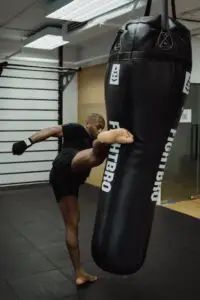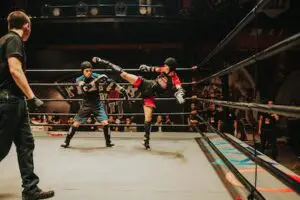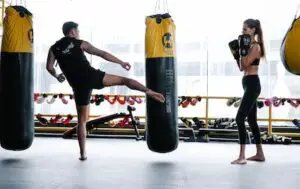Judo is a sport that has gained massive popularity over the years, and it’s no doubt that cadet judo players form a significant part of the community. Judo cadets refer to young players who are between the ages of 15 and 17 (depending on the country) and compete in the designated judo tournaments. As such, it’s essential to understand what being a judo cadet means, the rules, and how to become a successful judo cadet. In this article, we’ll delve deep into the world of judo cadet and answer the following six sub-questions.
What is a cadet judo player?
A cadet judo player is a young judoka who is between the ages of 15 and 17. The International Judo Federation (IJF) sets the regulations around cadet judo, and the minimum age for cadet division may vary between countries and regions. Cadet judo players can compete in various tournaments, including national and international events. These players must adhere to the rules concerning their age, weight, and belt level.
What are the rules of cadet judo?
The rules of cadet judo are similar to those of other judo age-groups, but there are some specific regulations that apply to cadet judo. The IJF provides detailed rules and regulations that cadet judo players must follow. These rules stipulate that cadet judo players use throws, arm bars, leg-locks, and strangles in their matches.
Cadet judo matches are typically four minutes long. Players score points by throwing their opponent onto their back or pinning them on the ground for 20 seconds. The match can also end with a submission or disqualification if a player violates any of the rules.
How is cadet judo different from other age-groups?
One significant difference between cadet and other age-groups is the players’ age. Cadet judo players are between the ages of 15 and 17, while junior players are between 18 and 20.
Another difference is the techniques that players can use. Cadet players are not allowed to use leg grabs (morote-gari, kata-guruma, etc.) and can only perform leg sweeps (ashi-waza) against the inside of the thigh.
Finally, the duration of the matches also varies between age-groups. Cadet matches are typically four minutes long, while junior matches are five minutes, and senior matches are seven minutes.
What are the benefits of being a judo cadet?
There are many benefits of being a judo cadet. For one, cadet judo provides an opportunity for young players to hone their skills in a supportive environment. Judo is a physically and mentally demanding sport that teaches discipline, respect, and self-control, all of which are valuable skills for young cadets.
Additionally, participating in cadet judo tournaments helps players build valuable relationships outside of their immediate community. Traveling to various national and international events presents cadets with multiple opportunities to meet and learn from other players from different backgrounds.
Finally, judo cadets can also have potential career paths in the sport, whether as coaches or professional athletes.
How can a cadet judo player become successful?
To become a successful cadet judo player, young judokas must start by finding a reliable coach who understands the cadet age-group’s unique needs and requirements. Players must also practice regularly and develop a strong work ethic to better their skills.
Another critical aspect of success is developing a positive mindset and mental toughness. Cadet judo players must be prepared to deal with the highs and lows of the sport, and mental resilience and focus will help them overcome any challenges they may face.
Finally, cadet judo players must also attend as many tournaments as possible to compete against other highly skilled players. Competitions help to boost experience and skills, and also contribute to the development of the player’s technique, decision-making and confidence.
What events do cadet judo players compete in?
Cadet judo players can compete in many national and international tournaments throughout the year. The International Judo Federation organizes events such as the Cadet World Championships and the Cadet European Championships, where the most top-performing cadet players participate.
Conclusion
In conclusion, Cadet judo is a crucial milestone for any young player looking to achieve success in judo. It offers young players the opportunity to develop their techniques, mental toughness, and discipline while also providing a platform to build connections within the sport. Becoming a real contender in cadet-level judo requires hard work, commitment, and a willingness to learn and adapt, under the watchful eye of a dedicated coach. Ultimately the effort put in will produce opportunities that could lead to achieving a successful career in the sport.





